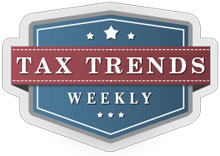The EEOC Increases Burdens on Business
Some business owners have voiced concerns about the Obama administration’s excessive regulation of small businesses. The health care burdens imposed by the Affordable Care Act on such businesses are an obvious example of such regulation. But much less attention has been paid to regulatory guidance issued by the Equal Employment Opportunity Commission (EEOC) in April 2012. This guidance advises employers that they may run afoul of the law if they rely on criminal background checks to eliminate job applicants from consideration.
Under current law, race-neutral policies that have a disparate impact on protected groups are subject to legal challenge, with the alleged offender then having the responsibility to provide evidence that it has sound business reasons for the challenged policy. The EEOC guidance believes that background checks by employers- and rejecting applicants based on their arrests or convictions- can have a disparate impact on some minority groups whose members are incarcerated at rates greater than their percentage of the general population. The guidance states that the EEOC “recommends that employers not ask about convictions on job applications.” Moreover, employers that do rely on background checks are encouraged to incorporate them as part of an “individualized assessment” of each applicant.
Businesses face several problems as a result of the EEOC’s guidance. First, it effectively requires employers to spend more time and resources reviewing job applications, even in fields where employers receive numerous applications for every opening. Second, businesses must walk a fine line by obeying both state laws (some of which prohibit felons from holding certain jobs) while also obeying EEOC rules, which often control over state law; a business could conceivably encounter a situation in which it is impossible to satisfy both state law and EEOC rules. Third, employers expose themselves to potentially massive tort liability if they hire people with criminal records who later abuse their position as employees. There is no certain way to avoid such liability while also complying with the EEOC rules. As some critics of the guidance have pointed out, it contains no “safe harbor” for employers, thereby creating great uncertainty. Ultimately, the guidance makes the employment application process more cumbersome, expensive, and uncertain for employers- something the American economy does not need.

